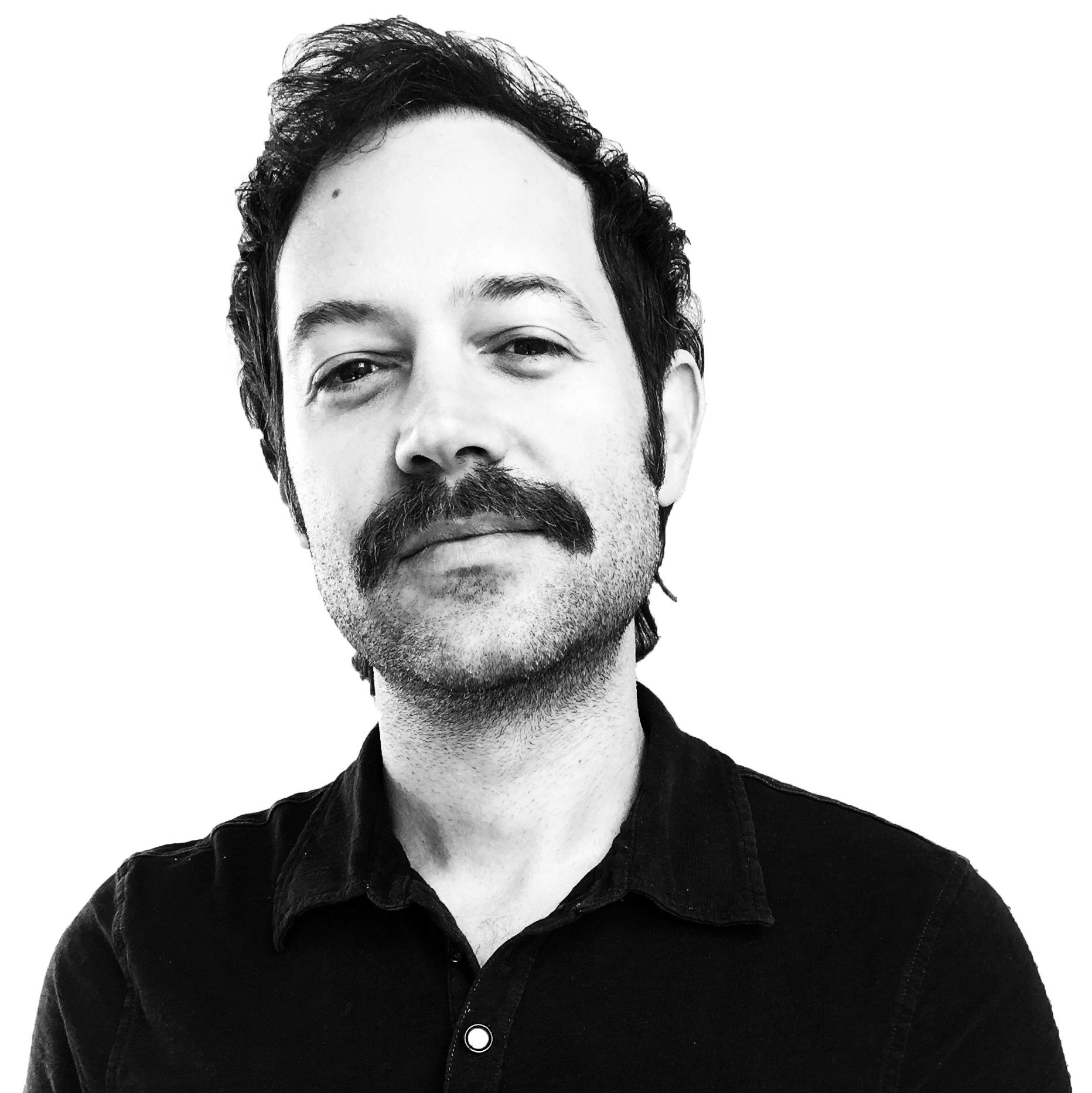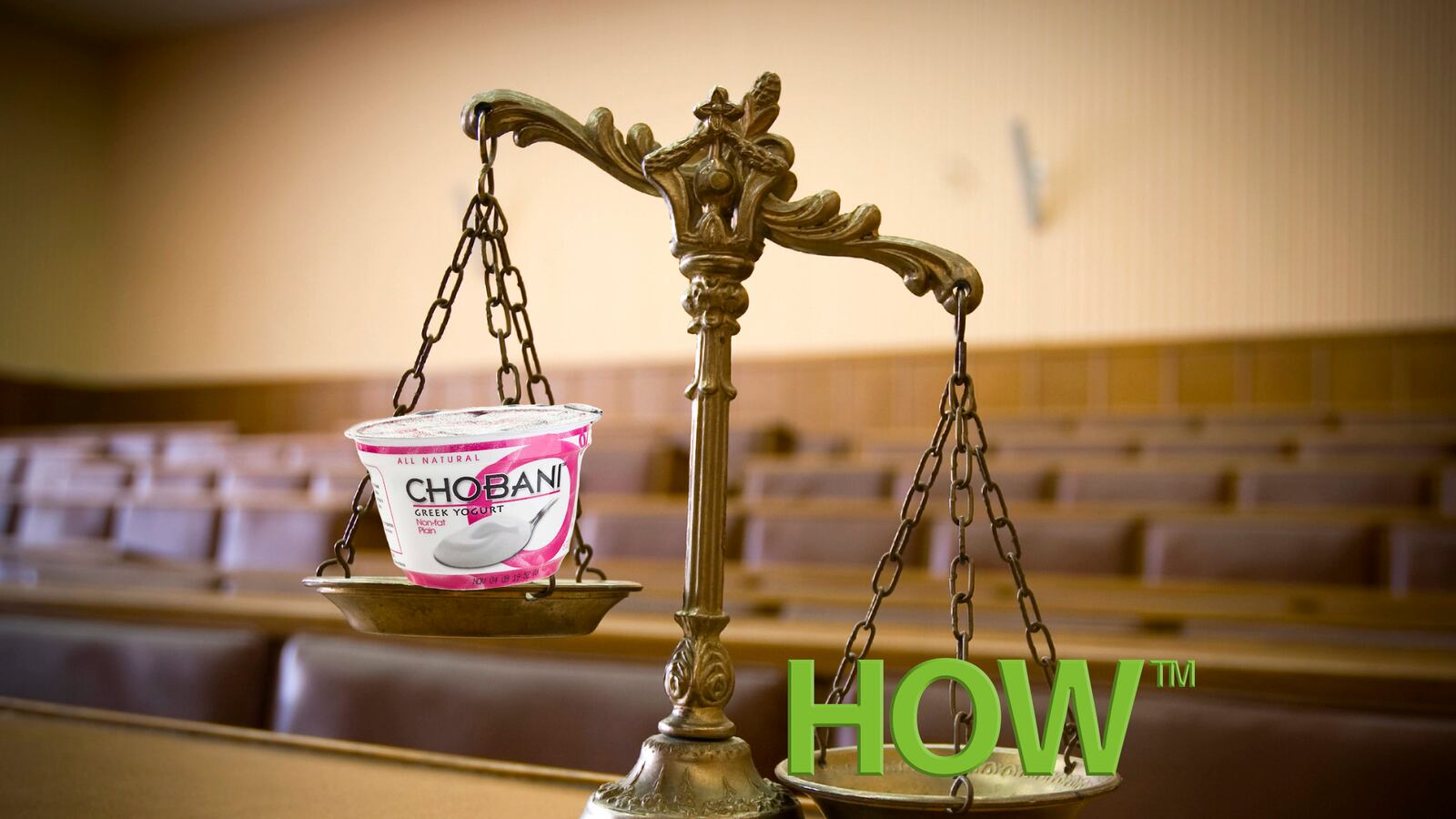Every year—maybe every month—America is disgraced with an especially heinous lawsuit. Some are frivolous. Some are malicious. Some cough up preposterous jury awards, while others lay bare the egregious failures of the criminal justice system. Some of the worst lawsuits are lawsuits that never happen, because the allegations behind them are simply settled out of court.
But America revels in its great, symbolic court cases. When there’s a momentous case on the line that seems to epitomize the spirit of the age, however twisted, we stand up and take notice.
Today, however, just such a lawsuit is flying under the radar, waiting to capture the public’s imagination. From the parties involved to the issues at stake, it’s reminiscent of Tom Wolfe at his best—and indicative of America at its worst.
Point one: It pits a best-selling management guru against a trendy yogurt company.
Point two: The guru, Dov Seidman, claims that the yogurt purveyor, Chobani, ripped off his lucrative (and heavily marketed) worldview. Chobani, says Seidman, has infringed on his trademark.
Point three: The trademark at issue is the word “how.”
Confused? Seidman, The New York Times explains, “is in the business of helping companies create more ethical cultures. He has distilled that business to a single three-letter word: how. President Bill Clinton wrote the foreword to his book, ‘How: Why How We Do Anything Means Everything.’”
Point four: Bill Clinton writing about a culture of ethics.
Sure enough, Chobani’s new ad campaign is very heavy on the how. “How,” the new Chobani ads reveal, “matters.” Since Seidman also maintains the core belief that how matters, his management material also instructs corporations in search of a soul that How Matters.
That, for Seidman and his attorneys, is proof positive that Chobani has stolen from him, and he is will not rest until he gets his how back. “It’s a moral fight,” he told the Times. “It’s a ‘How’ fight.”
Point five: How…meta.
But wait, there’s more. Alone, the attributes of this case might merely revolt or amuse you, even if they do seem to sum up everything hyped-up, hyper-self-conscious, and aggressively “positive” about elite corporate culture today. It may strike you as a travesty, but not much more, that today’s advertising agents and court spiritualists for the plutocracy, have strip-mined and clear-cut so much of life’s meaning that they are now reduced to fighting like rats over the very concept of the manner in which things are done.
True, true; but look deeper. Why is the word “how” worth so much money, anyway? How could it be that this word, and not “what” or “why,” has caused a bare-knuckle brawl at such a stratospheric social level?
Chobani made a terrible mistake, that’s how. Founded in 2005 by a Turkish immigrant—who hails from a culture where tradition, honor, and continuity still define how work is done—Chobani failed to understand that, in our democratic age, Americans like Seidman cannot and will not differentiate between an ad campaign that holds the process of artisanal craft aloft and one that advances a capitalistic new-age philosophy.
For Chobani, “how matters” in the sense of how their trendy yogurt is carefully prepared. For Seidman, “how matters” in the sense that more and more of us really are becoming disillusioned and betrayed by a politics of identity grounded in what or who we are. Exhausted and malnourished by today’s endless wars over how much status attaches to our personhood and our affinity group, Americans are gaining the hard-won insight that being human is ultimately a matter of how we act and behave.
Some of us, however—ahem, Seidman—are so ambitious about advancing us (and themselves) to new levels of big-time well-being that they actually think they can own the idea of being human as being how we are.
And that’s a silly proposition. Because, in what an ethics guru might call a “very real sense,” how is not a brand, it is reality.
The urge to monetize reality is a natural extension of our powerful American desire to not only live well, but to figure out how to do so in a fast, simple, and direct way that everyone can equally understand—and purchase at an attractive price.
Yet, at the same time, we all understand that this manifestation of our longing to “have it all” subverts the authenticity of our how-ness. From ancient Buddhism to modern Christianity to post-modern new-age syncretism, spiritual discipline means abandoning the “self” as an illusory folly.
This is no coincidence. No matter what adversity or fear we may confront, we are always inherently free to choose how to be. No matter how defined by others we may feel—and no matter how real our given constraints as particular people with particular identities—this radical freedom is constitutive of our shared humanity. It’s how we access, in a transformative way, the way in which we’re identical to one another.
That kind of freedom, and the solidarity it produces, can't be commoditized. It will always ring hollow when people try to turn it into a product—no matter how much Bill Clinton gushes over it.
Yet here we are, fighting over ownership of the idea of freedom. What could be more American than that?






